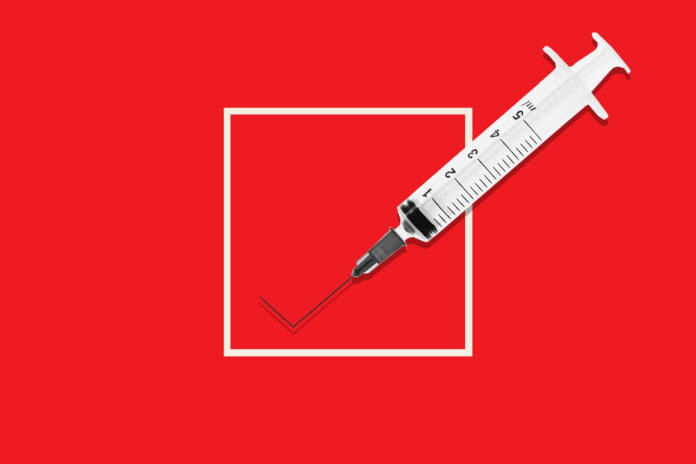
In response to the escalating number of cases caused by the delta variant, President Joe Biden launched a six-part national strategy to combat the COVID-19 virus on Sept. 9, 2021.
The primary goal of this plan was to vaccinate as many Americans as possible in order to help mitigate the impact of the pandemic. Federal employees, government contractors and employees of commercial firms with 100 or more workers were required to get vaccinated under the plan.
Students were also required to submit documentation of completion of the COVID-19 vaccine series by Nov. 1st, 2021. Those failing to provide the immunization before the deadline would not be allowed to enroll in Spring 2022 semester classes.
The action plan also stated that employers must choose between complete vaccination or weekly testing for their staff within 30 days. The order must be implemented by Jan. 4, 2022.
According to USA Facts, 70 percent of the U.S. population, or approximately 225 million individuals, are currently vaccinated. The action plan was successful in vaccinating 40 percent of the population, which is considerable progress for the Biden Administration.
In light of this information, vaccination appears to be the best option for protecting American lives. The crucial point, however, is whether this vaccine mandate infringes on individuals’ civil liberties and freedom.
Studies show that those who are vaccinated are less likely to contract the COVID-19 virus than the ones who are unvaccinated.
For instance, data from the Centers for Disease Control and Prevention reveals that unvaccinated people are far more likely than fully vaccinated people to test positive or die from COVID-19. The immunizations provide people with a safety net when they go out, allowing the spread of the disease to be stopped or minimized.
However, there are some who are not able to receive the vaccination for a variety of reasons, including a lack of access, a failure to recognize COVID-19 as a threat, concern about the vaccine’s side effects, a lack of faith in vaccines or the organizations that support them and a belief in at least one of numerous conspiracy theories.
Since many employers now require vaccination proof, employees are forced to choose between their jobs and their personal preferences. Some people either have allergies or hold religious beliefs that prevent them from receiving the vaccine, something that needs to be addressed as it is currently unclear what will happen to those who request medical and religious exemptions.
According to the law, they are protected under the Civil Rights Act, which prohibits individuals from being discriminated against due to their religious beliefs.
The Bloomberg Law, a subscription-based service for online legal research, states that vaccine mandates have been brought up to the courts 40 times this year. Religious exemptions were not offered as an option in states such as Maine and New York, and everyone was obligated to get vaccinated, regardless of opinions or concerns.
The U.S. government is still attempting to figure out how to handle the various viewpoints on vaccinations, but the country is making progress. The number of COVID-19 cases is decreasing while the number of vaccinated people is increasing.
The question of whether or not everyone should be vaccinated is complicated and difficult to resolve. Individual freedom of choice must be respected while safeguarding the wellbeing of the majority of Americans.
